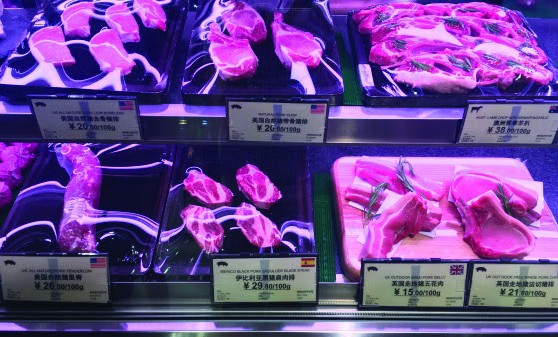Government intervention in the pork market via bulk purchasing has resulted in a significant rise in pork prices in China.
Chinese pork prices had been low from the start of the year, but surged in late July, data on Dalian Commodity Exchange futures shows. As of Thursday, hog futures were 16.50 yuan ($2.26) per kilogram for the nearest-term contract, compared with just above 13 yuan range in mid-July, according to a report by Nikkei Asia.
“One trigger for the reversal in prices is the Chinese government propping up pork through purchases,” said Li Xuelian, senior analyst at the Marubeni Research Institute.
In July, the government said it had stockpiled 20,000 tonnes of pork to replenish national reserves, the second buy-up action this year, following similar action in February.
Pork accounts for about 60% of all meat consumed in China, meaning the Government felt to react last year when ‘porkflation’ escalated to dramatic high, this time releasing pork reserves into the market to stabilise prices.
This time, the Government has intervened to support producers, with excess supplies threatening to force small farmers out of business, leading to an undersupply and higher prices, in order to try avoid boom-and-bust ‘pig cycles’ that it seen so often in the recent past.. “Many pig farm operators fell into the red,” said Ruan Wei, research counselor at the Norinchukin Research Institute.
The pork price slump caused Chinese breeders to weather losses for a record seven months, but conditions are likely improve in the second half of the year, an executive at the Chinese pork giant WH Group said in August.
“There are upcoming events where pork consumption traditionally increases, such as the mid-autumn festival at the end of September, the National Day break in October, and the Lunar New Year holiday next February, so the apparent oversupply will ease and the supply-demand balance will tighten somewhat,” said Li of the Marubeni Research Institute.
Higher pork prices are expected to visibly impact overall inflation trends, the report notes, with the consumer price index up 0.1% on the year in August.




